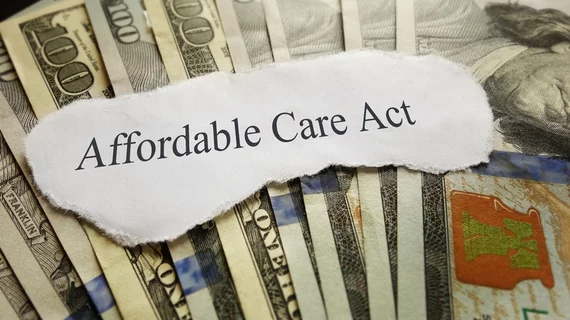Senator promotes price transparency, short-term insurance in healthcare plan
Sen. Bill Cassidy, MD, R-Louisiana, released a series of new healthcare proposals that would expand insurance which doesn’t comply with the Affordable Care Act, along with new ideas on requiring price transparency and incentivizing care settings that are less expensive than hospitals.
His eight-page plan—dubbed “Ideas to Make Health Care Affordable Again”—doesn’t include repealing the ACA like the 2017 Graham-Cassidy bill. It does propose allow more non-ACA-compliant plans, such as codifying the proposed regulation of HHS allowing short-term coverage to be renewed for up to 364 days, giving customers the option of buying insurance which may not cover the benefits required by the ACA and may charge more based on pre-existing conditions.
Insurance companies and other healthcare groups have been overwhelmingly opposed to the the expansion of short-term plans, arguing they’ll siphon away healthier customers from the individual market. Cassidy argued they would “create policies patients need as opposed to making them for that which they do not.”
“These plans aren’t the solution for everyone, but affordability correlates with purchasing insurance, so these plans will allow some uninsured individuals to enroll in a plan they can afford and provide them the protection they need in the event of an accident,” Cassidy’s plan said.
Cassidy also suggested allowing states to combine the risk pools of beneficiaries of Medicaid expansion with the ACA marketplace, mixing federal funds for expansion and ACA subsidies to let states set up reinsurance and high-risk pool programs and providing additional funding to promote higher individual market enrollment among younger customers.
Outside of the ACA proposals, Cassidy suggested a wide variety of deregulatory measures, such as setting a goal of reducing costs associated with HHS regulations by 10 percent. Other parts of the plan touched on broader strategies, such as having Congress require providers to list prices for elective procedures.
“Patients do make different choices and save money when they are able to compare prices and quality for health care services,” Cassidy’s plan said. “This must be accompanied by an education campaign to ensure consumers are aware that they can figure out the price and quality of their care ahead of time. Encouraging price transparency will lower costs, reduce pricing variation between providers, improve quality, and return power to the patient.”
Cassidy and a bipartisan group of senators asked healthcare groups earlier this year to detail what’s holding back price transparency efforts. Hospital groups at the state level have fought such requirements while few patients have made use of transparency tools when available.
Other parts of the plan openly admitted that enacting change would “take a long time.” Cassidy said Congress and the Trump administration should push healthcare to focus more on social determinants of health—a priority which has been pursued by hospital groups without much assistance from the federal government.
Cassidy recommended efforts start with a HHS-commissioned study on social determinants and existing disparities within the U.S. healthcare system.
“At the conclusion of this study, HHS should submit a list of recommendations to Congress on how to bend the cost curve and improve health outcomes by addressing these disparities,” the plan said.

